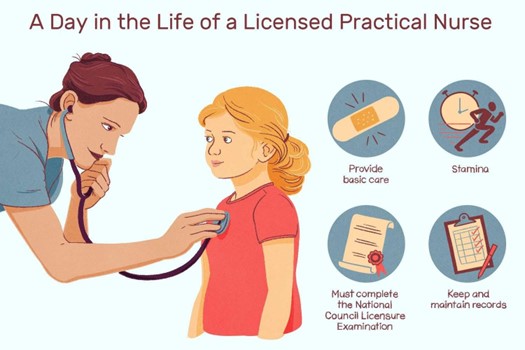A nurse is delegating client care assignments for the upcoming shift. Which of the following tasks should the nurse plan to delegate to the assistive personnel (AP)?
Collecting intake and output.
Evaluating pain relief after administering pain medication.
Providing a central line dressing change.
Selecting a menu for a low-sodium diet.
The Correct Answer is A
Assistive personnel (AP), also known as unlicensed assistive personnel (UAP), can perform tasks such as recording vital signs ¹. Collecting intake and output [a] is a task that can be delegated to an AP.
The other options are not tasks that should be delegated to an AP.
Evaluating pain relief after administering pain medication [b] involves assessing the effectiveness of a medical intervention, which is typically the responsibility of a licensed nurse.
Providing a central line dressing change [c] is a complex task that requires specialized knowledge and skills.
Selecting a menu for a low-sodium diet [d] involves dietary planning, which is typically the responsibility of a licensed nurse or a registered dietitian.
Nursing Test Bank
Naxlex Comprehensive Predictor Exams
Related Questions
Correct Answer is B
Explanation
The State Board of Nursing is responsible for regulating the practice of nursing within a specific state. It establishes the scope of practice for LPNs and sets the standards for their education, licensure, and practice. Therefore, the State Board of Nursing would be the best source of information regarding the roles of an LPN in a med-surg setting.
The other options may provide some information about the roles of an LPN in a med-surg setting, but they are not the primary source. The facility Human Resources Department [a] may have information about job descriptions and responsibilities specific to that facility. Nursing textbooks [c] may provide general information about the roles of LPNs. Coworkers on your unit [d] may have personal experience and knowledge about the roles of LPNs in that specific unit, but their information may not be comprehensive or up-to-date.

Correct Answer is B
Explanation
A nurse's best protection against negligence or malpractice is to follow the standards of practice. These standards define the acceptable level of care that a nurse is expected to provide and are based on current evidence and professional consensus. By adhering to these standards, a nurse can demonstrate that they have provided care that meets the expected level of quality and safety.
The other options are not the best protection against negligence or malpractice. Asking permission from the managing nurse prior to performing any duties [a] may be helpful in some situations, but it is not a guarantee against negligence or malpractice. Never being alone with a patient [c] is not practical or necessary for providing safe and effective care. Recording patient interactions with your phone [d] may violate patient privacy and is not an effective way to prevent negligence or malpractice.
Whether you are a student looking to ace your exams or a practicing nurse seeking to enhance your expertise , our nursing education contents will empower you with the confidence and competence to make a difference in the lives of patients and become a respected leader in the healthcare field.
Visit Naxlex, invest in your future and unlock endless possibilities with our unparalleled nursing education contents today
Report Wrong Answer on the Current Question
Do you disagree with the answer? If yes, what is your expected answer? Explain.
Kindly be descriptive with the issue you are facing.
